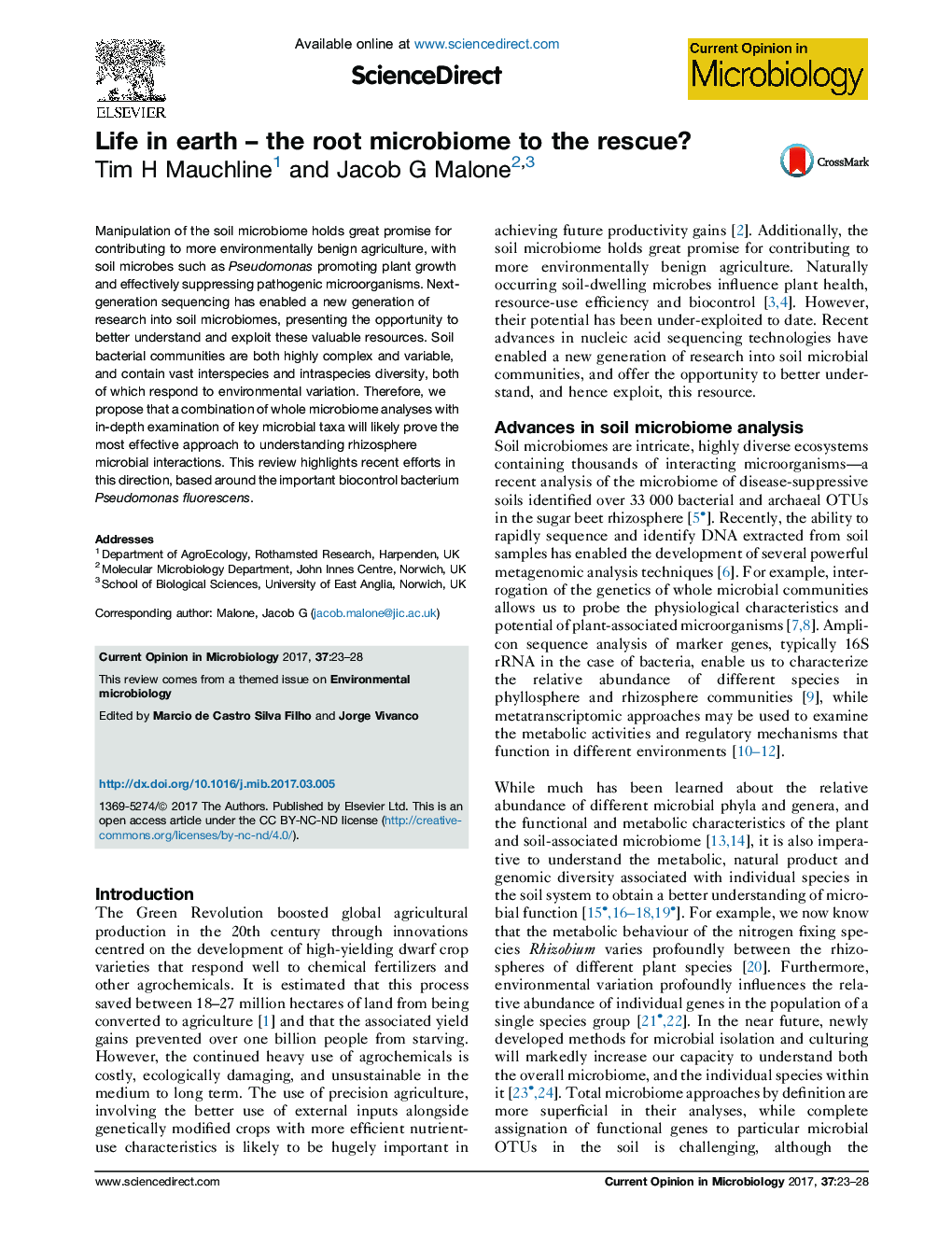| Article ID | Journal | Published Year | Pages | File Type |
|---|---|---|---|---|
| 5671716 | Current Opinion in Microbiology | 2017 | 6 Pages |
â¢The soil microbiome has great potential for crop growth promotion and biocontrol.â¢Next generation sequencing has facilitated novel research into the soil microbiome.â¢Pseudomonas spp. produce a diverse array of secreted enzymes and natural products.â¢Global and in-depth soil microbiome analyses effectively complement each other.â¢Wheat variety impacts on both soil microbial diversity and the Pseudomonas genome.
Manipulation of the soil microbiome holds great promise for contributing to more environmentally benign agriculture, with soil microbes such as Pseudomonas promoting plant growth and effectively suppressing pathogenic microorganisms. Next-generation sequencing has enabled a new generation of research into soil microbiomes, presenting the opportunity to better understand and exploit these valuable resources. Soil bacterial communities are both highly complex and variable, and contain vast interspecies and intraspecies diversity, both of which respond to environmental variation. Therefore, we propose that a combination of whole microbiome analyses with in-depth examination of key microbial taxa will likely prove the most effective approach to understanding rhizosphere microbial interactions. This review highlights recent efforts in this direction, based around the important biocontrol bacterium Pseudomonas fluorescens.
